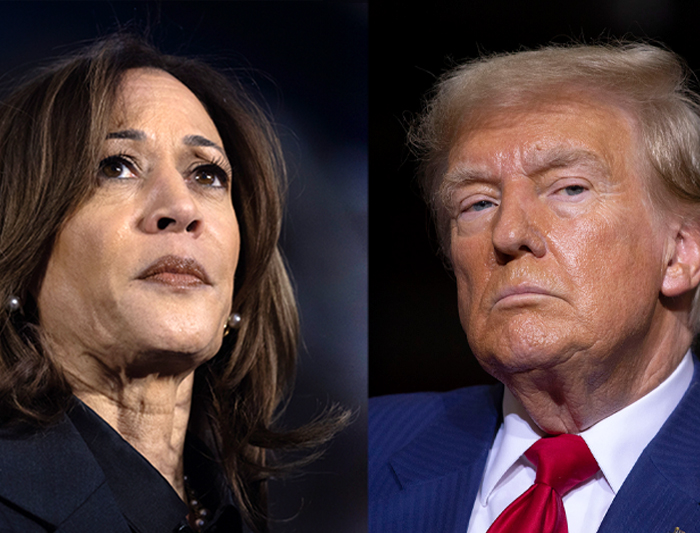Why Kamala Harris lost — and why it wasn’t close
Americans are deeply dissatisfied with the brutal economy, and punished Democrats over it
By Andrew Perez

It happened, again: Democrats lost a winnable election to a racist, orange-makeup-wearing carnival barker, despite his odiousness, immorality, and unbridled corruption. This time, Donald Trump campaigned on an even darker agenda — the mass deportation of migrants, calls for more violent policing, and demands of retribution against his enemies — and he didn’t have to try to steal the election in the courts or via a violent coup. In the battleground states, he appears to have run the table, and he will likely win the popular vote outright, something a Republican hasn’t done in two decades.
There are plenty of factors that could help explain why Vice President Kamala Harris lost — and why the race ultimately was not that close: Joe Biden’s crushing unpopularity; pervasive sexism, racism, and xenophobia; an American culture that stupidly valorizes the ultra-wealthy and licks their boots. There was the Harris campaign’s decision to run a safe, staid campaign, from Democrats’ favorite failed playbook, Be Like Republicans. There was her refusal to break from Biden over his support for Israel’s war in Gaza — carnage that plays out on our screens daily, and has particularly affected young people.
The most likely explanation, however, for why Harris lost is the most basic one: Americans are deeply dissatisfied with a brutal economy.
After Washington put an end to Covid-era pandemic aid programs, Americans suffered two years of sky-high inflation, impacting the price of nearly everything, alongside higher interest rates — which drove up credit card rates, mortgage rates, the costs of car loans, and more. Amid a punishing cost-of-living crisis, voters have now punished Democrats.
Exit polls and other survey results coming out of the 2024 election are incredibly clear that this contest was, as is often the case, about the economy, stupid.
Edison Research exit polls show that two thirds of voters believe the state of America’s economy is poor or not so good; 69 percent of them voted for Trump. Asked what the most important issue in their vote was, 31 percent of voters said the economy, and 79 percent of those voters supported Trump.
The Fox News Voter Analysis survey results offer similar findings: 63 percent of respondents said the state of the economy is poor or not so good, and 68 percent of them said they were supporting Trump. Among the 39 percent of respondents who said the economy and jobs are the most important issue facing the country, 60 percent said they were backing Trump.
Similarly, 40 percent of respondents said the single most important factor in their votes is high prices for gas, groceries, and other goods; 64 percent of them said they were supporting Trump.
There’s good reason to distrust that Trump’s 2025 agenda will financially benefit the average American. His plan to impose widespread tariffs on imported goods will raise prices for consumers. His plan to preserve his tax cuts for the rich and further slash the corporate tax rate will surely once again primarily benefit the wealthiest Americans. Trump has promised to give a top administration role to the world’s richest man, Elon Musk, who pledged to impose major spending cuts that would “involve some temporary hardship.”
But Americans, enraged about the economy, were not voting for Trump’s economic agenda, in particular. They were simply registering their disapproval of the state of the economy as it stands, today.
This election cycle, there has been a prevailing wisdom among some Democrats and the broader pundit class that Americans are wrong to think the economy is bad — in fact, it’s great, why the gloom? Perhaps folks are misremembering their own financial situations during the Trump era? Don’t people know that inflation has finally slowed? Have they seen these GDP growth charts?
Early on in the pandemic, the U.S. Census Bureau started asking Americans questions about the state of their household — including whether it’s difficult to pay typical household expenses. When Trump lost in 2020, the percentage of Americans who said it was difficult to pay their bills was around 34 percent. That figure climbed until Congress passed new pandemic aid programs, at which point, it dropped considerably. As those aid programs came to a close, the percentage of Americans struggling to pay their bills spiked — and Biden’s approval ratings fell.
Ending pandemic aid, combined with inflationary price hikes and higher interest rates, created a financial disaster that has not ended. As of September, 37 percent of Americans reported having difficulty paying their typical household expenses — a slight uptick from earlier this year.
That brutal financial reality created a brutal 2024 political environment for Democrats, and helped Republicans deliver a knockout blow.
